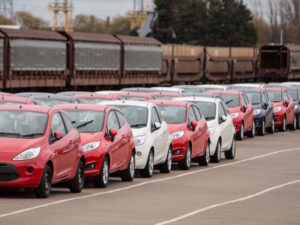Tax treatment of car benefit schemes likely to erode low-emission vehicle take-up
Changes to the tax treatment of car benefit schemes are likely to undermine government efforts to drive take-up of low-emission vehicles.

Changes to the tax treatment of car benefit schemes are causing controversy.
So say industry experts as this week’s Finance Bill confirms new tax treatment for both salary sacrifice and cash allowance schemes for vehicles above 75g/km as well as rises to Company Car Tax from 2020/21.
As announced in the Autumn Statement, the Finance Bill sets out that a number of salary sacrifice schemes, including for cars above 75g/km, will now be subject to new income tax and NIC treatment to avoid “unfairness”.
The new legislation will take effect on new or revised contractual arrangements involving salary sacrifice implemented on or after 6 April 2017. For arrangements in place before that date which continue to apply without change, the new rules will take effect from 6 April 2018.
The Finance Bill also sets out that where employees are offered a cash allowance in lieu of a company car, tax will be payable on the higher of the BiK tax on a car or tax on the cash allowance. As with salary sacrifice, this applies to vehicles with emissions above 75g/km.
The Finance Bill also sets out the new bands for company car tax from 2020, which will include a new zero-emission band for cars with no CO2 emissions, five new bands for cars with CO2 emissions of 1 to 50g/km, which are based on the electric range figure of the car; and 5 new bands for cars with CO2 emissions figure of 51 to 74g/km.
In response, fleet management consultant Colin Tourick said the changes to cash allowances could disincentivise employees from adopting lower-emission vehicles.
“If tax is to be payable on the higher of the BiK tax on a car or tax on the cash allowance, employees will lose the incentive to choose a low CO2 car. Will this Finance Bill lead to an increase in the average CO2 emissions of new cars going into fleets? Quite possibly! What was the Government thinking of?”
Meanwhile according to Andrew Leech, managing director of Fleet Evolution, the salary sacrifice changes will not impact on cars below 75g/km CO2 and above 100g/km, but for cars with emissions of 76-99g/km, costs will increase. He added: “In reality this probably means employees will move away from ‘eco/blue’ variants, which sometimes have a higher list price, and back to the none ‘eco/blue’ alternative.”
And vehicle and asset finance specialist, Maxxia Group said ongoing tax changes could impact on employee take-up of car schemes. The firm contacted employees currently provided with a car under a salary sacrifice car scheme, those driving a traditional company car and those who had opted to take a cash alternative, and found that 92% of employees view employer-provided car schemes as a positive benefit. But 70% say they would consider opting out and taking a cash alternative if car tax levels rise still further, suggesting that the sector is on the brink of a tipping point.
Commenting on the findings, Gordon Calder-Jones, director of Maxxia, said: “What was clearly apparent was how finely balanced the decision regarding being part of an employee car scheme and opting out was, following the changes. While an overwhelming majority of employees still see the car as an attractive benefit, any further tax increases are likely to tilt the balance dramatically.
“And it was also very evident that financial rather than environmental considerations were of the most importance for employees in making any kind of choice,” he added.

















